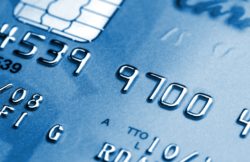Top Class Actions’s website and social media posts use affiliate links. If you make a purchase using such links, we may receive a commission, but it will not result in any additional charges to you. Please review our Affiliate Link Disclosure for more information.
According to reports from bank customers and credit union members, some financial institutions may be assessing foreign transaction fees for purchases made domestically from inside the United States. CenterState Bank may be one financial institution potentially charging these fees.
What Are Foreign Transaction Fees?
A foreign transaction fee is a fee that is assessed when a consumer makes a purchase that is processed internationally. Usually, this occurs when someone is traveling to a foreign country and makes a purchase or uses a foreign ATM. When foreign transaction fees are applied in these instances, consumers often expect them, as they are in another country and understand that their transactions are being processed internationally.
Many frequent travelers choose credit or debit cards that have low or no foreign transaction fees in order to save money on their trips, as these fees are generally between 1% and 3% of the cost of each transaction, and they can also add up quickly. However, according to recent reports from consumers across the U.S., these foreign transaction fees may also be imposed on purchases made from inside consumers’ own homes.
Can Foreign Transaction Fees Apply Domestically?
Consumers who purchase goods online may be at risk of being hit with unexpected international processing fees, even when they have purchased these goods while inside the U.S. Regardless of where the purchaser is located, they may be at risk of being assessed a foreign transaction fee if the company they are purchasing through processes their purchase internationally. Indeed, according to Investopedia, any purchase made from a merchant based outside the U.S. can incur a foreign transaction fee—including online purchases.
Although checking the website you are purchasing goods from may give you information about where the company is based, some consumers have reported being unaware that they had made purchases from companies based internationally, and that this information was not available on the retailers’ websites.
Often, a prominent sign that you may be hit with a foreign transaction fee while shopping online in the U.S. is if the website you’re shopping from displays prices in any foreign currency other than the U.S. dollar amount. In some cases, a purchase through a foreign seller through a U.S. website, like Amazon, may still incur a foreign transaction fee.
Although many people have argued that imposing a foreign transaction fee for purchases made online from the U.S. is deceptive and unfair, many banks and credit unions have been accused of continuing to assess these fees.
Do CenterState Bank Fees Include a Foreign Transaction Fee?
According to CenterState Bank’s fee policy, the bank charges a fee of 3% of the amount of the purchase for each transaction made internationally. Additionally, the bank charges a $1 fee for PIN based purchases, a $3 fee for international ATM withdrawals, and fees of $1.50 for international ATM balance inquiries and declines. These fees may quickly add up to a costly surprise for the account holder.
Although the CenterState Bank fees policy does not explicitly state that the bank also charges these fees for online purchases made from the U.S. that are processed internationally, this may be the case.
 Can You Avoid International Fees on a CenterState Bank Credit Card?
Can You Avoid International Fees on a CenterState Bank Credit Card?
You may be able to avoid foreign transaction fees from being assessed when you make purchases with your CenterState Bank credit or debit card. If you are traveling internationally, you may be able to avoid these fees by paying in cash or local currency, and avoiding using foreign ATMs to check your balance or make transactions. If you want to avoid these fees while online shopping, you may be able to research the retailer you are purchasing from in order to determine whether they process their transactions in the U.S. or another country. However, in some cases, even when it appears as though retailers are based out of the U.S., they may process purchases overseas.
There are some credit cards available that don’t charge foreign transaction fees. According to creditcards.com, these include:
- Chase Sapphire Reserve
- Capital One Quicksilver Cash Rewards Credit Card
- Capital One Venture Rewards Credit Card
- The Platinum Card from American Express
- American Express Green Card
- Discover it Miles
- Discover it Secured
- United Explorer Card
When Are International Bank Fees Illegal?
According to some lawsuits filed against banks and credit unions by consumers who have been hit with these fees unexpectedly, international bank fees may be illegal. Plaintiffs have argued that these fees may be illegal when their bank’s fee policy does not disclose that foreign fees may be applied not only to purchases made in other countries, but also to purchases made online. As banks are generally required to disclose fees to consumers before charging them, hiding these fees may violate consumer protection laws. Additionally, when retailers make it difficult for consumers to determine where their transactions are processed, consumers may be more likely to be charged unexpected fees.
Filing a Foreign Transaction Fee Lawsuit
A growing number of consumers are coming forward with litigation about unfair bank fees, including foreign transaction fees.
Attorneys are currently looking into the foreign transaction fee practices of a number of banks, including:
- CenterState
- Arvest
- HSBC
- Glacier
- Washington Trust (RI)
- UMB
- Valley National
- Liberty Bank (CT)
- Central Pacific
- PSECU
- Others
If you have been assessed CenterState Bank fees for online purchases, you may be able to speak with an experienced attorney about your legal rights. In some cases, consumers who have been charged foreign transaction fees for online purchases may be able to join or file a class action lawsuit against their bank or credit union.
Filing a lawsuit can be a daunting prospect, so Top Class Actions has laid the groundwork for you by connecting you with an experienced attorney. Consulting an attorney can help you determine if you have a claim, navigate the complexities of litigation, and maximize your potential compensation.
Join a Free Foreign Transaction Fees Class Action Lawsuit Investigation
If you were charged a foreign transaction fee on a debit card or credit card purchase made on a foreign website, you may qualify to join this foreign transaction fees class action lawsuit investigation.
This article is not legal advice. It is presented
for informational purposes only.
ATTORNEY ADVERTISING
Top Class Actions is a Proud Member of the American Bar Association
LEGAL INFORMATION IS NOT LEGAL ADVICE
Top Class Actions Legal Statement
©2008 – 2024 Top Class Actions® LLC
Various Trademarks held by their respective owners
This website is not intended for viewing or usage by European Union citizens.


 Can You Avoid International Fees on a CenterState Bank Credit Card?
Can You Avoid International Fees on a CenterState Bank Credit Card?












